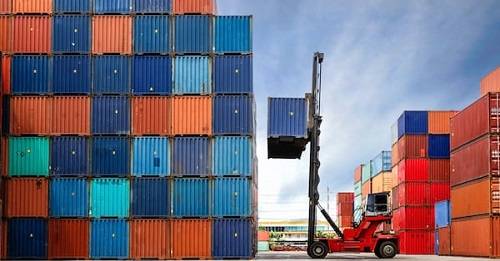Cedi depreciation decimates Ghana's export/import values despite overall trade surplus
The mid-year trade report released by the Ghana Statistical Service has revealed that Ghana is grappling with a notable decline in the value of exports despite achieving a trade surplus of GH₵ 2.4 billion in the first half of 2023.
The report, which offers a comprehensive overview of Ghana's international trade dynamics, highlights the need for adaptive trade policies in response to currency fluctuations.
While the overall trade balance appears positive with a significant surplus, a closer examination in US dollars terms reveals a concerning trend.
Imports in the first half of 2023 are reported to be US$1.1 billion lower than the corresponding period in 2022, and exports have also seen a decrease of US$1.7 billion.
The report said this significant disparity underscores the urgency for trade policies that can flexibly adapt to currency fluctuations, ensuring a more robust and sustainable trade environment.
The report emphasized Ghana's efforts to diversify exports, particularly in food products.
However, it noted that cocoa products and edible fruits and nuts still account for a staggering 80.3 percent of total food product exports.
Additionally, despite attempts to broaden the import portfolio, ten food items imported in the first half of 2023 constitute over 50 percent of all imported food items.
A positive aspect highlighted in the report is the surge in intra-African trade during the first half of 2023, where Ghana's exports outpaced imports from the continent.
While African countries are the destination for 22.0 per cent of all Ghana's exports globally, the report suggests untapped potential for intra-African trade, particularly within the ECOWAS region.
Surprisingly, ECOWAS represents less than half of Ghana's intra-African trade for both imports and exports.
This indicates a significant potential to harness the benefits of ECOWAS trade agreements, presenting numerous trade possibilities within the regional bloc.
Despite these positive trends, the report points out Ghana's heavy reliance on gold exports, constituting over 43.1 per cent of all exports. Mineral fuels and oils account for an additional 20.9 per cent. The concentration of refined petroleum imports (35.3%) highlights a more varied import portfolio compared to exports.



No comments yet
Be the first to share your thoughts!